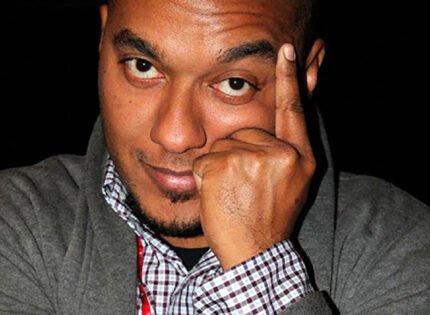by Rasta KEITH
In 1983 the United States government passed legislation designating the third Monday of January each year a national holiday in honour of the internationally-known civil rights leader Rev. Dr. Martin Luther King Jr. And the argument could be made that there is no human being who has traversed the surface of Mother Earth during the present epoch who is more deserving of that honour than the slain former Baptist preacher.
For despite the fact that a miniscule number of states still refuse to join in paying that kind of tribute to a Black man, Dr. King had in fact given up his life for the well-being of all Americans and, by extension, humanity.
Although the enslavement of Africans had been declared illegal in the United States more than some seventy years before the birth of the venerable minister, not a hell of a lot had changed in American society up to the inception of Dr. King’s non-violent direct-action movement.
For instance, by criminalizing thousands of Black People, former white slave owners were able to skirt the thirteenth amendment, which provided that no American could be enslaved except as punishment for having committed a crime. And by so doing they had assured themselves a reliable pool of free labour.
Without having any fear for his life, and aided and abetted by the likes of W.E.B. Dubois, Malcolm X, Angela Davis, Stokely Carmichael and, to no lesser extent, The Rt. Hon. Marcus Mosiah Garvey, and a host of other Freedom Fighters, Dr. King stood up against the Jim Crow institutions of his day. And thanks to the sacrifices of such valiant African Americans, the white establishment became increasingly disposed to treating Black People with a level of humaneness akin to that which is generally accorded in today’s society to dogs and other furry and feathered members of our so-called extended families.
But while Dr. King might be regarded as being truly deserving of having a holiday designated in his honour, the former orator par excellence might be the first to admit that there was another leader of African ancestry, the latchet of whose shoes he might not have been worthy to loosen. And that person is none other than the former Emperor of Ethiopia, His Imperial Majesty (H.I.M.) Haile Selassie. And so, if there is any other occasion which stands out for the observance of a yearly holiday by Black People and the rest of the world, that day must indisputably be July 23rd which is the birthday of the Emperor.
Throughout the Christian epoch, Arab and European crusaders have engaged in wantonly pillaging Africa and subjugating the Black race. Then, around the middle of the Second Millennium A.D., when disease and famine visited unprecedented economic hardship on the peoples of Europe, state-commissioned pirates (“explorers”) like Christopher Columbus, Vasco da Gama and Amerigo Vespucci sailed to the Americas and elsewhere. And after they had almost totally decimated the native populations in their newly “discovered” lands, they kidnapped millions of Africans who were subsequently shipped across the Atlantic Ocean for the sole purpose of serving the economic interests of the enslavers.
Throughout it all, Black People had never ceased fighting for their freedom. It was not until the dawn of the industrial era, however, that the perpetrators of the enslavement industry granted enslaved Africans what clearly amounted to a kind of paper “emancipation.” But just as Black people had no say in their enslavement, they also had no say in the terms and conditions of their so-called emancipation.
And they had absolutely no say in the subsequent Scramble for Africa. For not long after beguiling Black people with the notions of so-called “abolition” and “emancipation”, European leaders gathered at a conference in Berlin in 1884, and having accorded to themselves the requisite legal authority, set about to enslave the entire populace of the African continent.
For such kinds of semantics as colonialism, neo-colonialism, and imperialism aside, the subjugation of a people’s economic interests and freedom in the interest of another could only be called by what it truly is. And if it walks like a duck and quacks like a duck, it must be a duck. And so, despite all of the tokenism which has been paraded since Black People (a.k.a. “hut dwellers”), and countries with predominantly Black populations (a.k.a. “shit hole countries”) have been granted so-called independence, the prevailing state of international affairs, vis-à-vis Black People, must be recognised as a form of state enslavement.
Meanwhile, although the entire continent of Africa had been transformed by one stroke of the pen to becoming the fiefdom of Britain, France, Germany, Belgium, Spain, Portugal and Italy, the only realm which had successfully resisted the clutches of the invaders was Ethiopia. Thus, the significance of the role which had been played by Ethiopia and the Makonnen Dynasty in withstanding the inhumanity meted out to the African people should be forever etched into the mind of everyone of African ancestry.
Even with the blessings of Pope Pius X1, and despite the tremendous odds in favour of the Italians giving the Ethiopians the shellacking of a lifetime in the war of 1935, the Ethiopian people, led by the Emperor, emerged victorious following what H.I.M. had described as “the most unequal, most unjust, and most barbarous war of our age.”
Thenceforth, guided by the conviction that “it is [only] through hard work, know-how, and patience that [a nation] will be able to increase [its] capital”, the Emperor assiduously addressed himself to the task of transforming Ethiopia from a feudal society to a modern nation.
When the young Ras Tafari Makonnen assumed the role of Head of State of Ethiopia in 1930, the national budget did not exceed US$5,000,000.
By 1954 the budget was in excess of US$100,000,000 and the amount of money in circulation was well over US$220,000,000.
Between 1960 and 1970, Ethiopia enjoyed an annual 4.4 percent average growth rate in per capita GDP. And such development was particularly evident in the manufacturing sector of the economy.
In order to ensure that all Ethiopians were able to “live together as equals and brothers in the same family,” H.I.M. passed legislation to remove all vestiges of feudalism and other kinds of class privileges.
The number of hospitals and clinics had increased from less than 48 to more than 240 throughout the country. There were 35 times more schools as had existed before the war and thousands of young Ethiopians were sent abroad to study.
A national network of telephone and radio communications had been introduced. And the number of improved roads in the country nearly rivalled the combined mileage throughout the rest of East Africa. Commercial air travel was established to provide Ethiopians with easier access to the outside world.
The seeds of a modern air force and navy had been firmly planted and Ethiopia was clearly on the way to establishing the trajectory of “a steeply ascending curve of cultural and political development… and ever-widening national horizons.”
But the Emperor was not unmindful of the fact that the security of Ethiopia could be guaranteed only through the greater welfare of the rest of the world. As such, he was one of the staunchest advocates for the ideals espoused by the League of Nations and the United Nations. Accordingly, he had suggested a long time ago that if the monies expended on war would instead be diverted to global development rather than to the systematic destruction of weaker countries, there would be more than enough resources to end global poverty.
And he was convinced that world peace could actually be realized by nations striving toward world citizenship rather than by requiring individuals to pledge allegiance to particular flags and to feel that it is honourable and heroic to kill and die for a particular country.
Still, there was nothing dearer to the Emperor’s heart than the hope of seeing a United Africa with Africans throughout the world recognising themselves as A People. It was partly for this reason that he had visited Jamaica in 1966 and communed with Rastafarians in that country. And it was primarily for the purpose of underscoring such a conviction that he allotted the region of Shashamene to Rastafarians and other Africans in the diaspora desirous of returning to the Motherland.
H.I.M. knew fully well that the only way in which Black People could be duly represented in world forums and exert any kind of meaningful influence on international affairs was for African nations to speak with one voice. Toward that end, he worked feverishly with Kwame Nkrumah, Patrice Lumumba, Julius Nyerere, Sekou Toure, Kenneth Kaunda and other African stalwarts on the establishment of the Organisation of African Unity (O.A.U.) which earned him the title of “Father of African Unity.”
In his address to the Inaugural Conference of the O.A.U., he had made it abundantly clear that: “The opponents of Africa’s growth, whose interests would be best served by a divided and balkanized continent, would derive much satisfaction from the unhappy spectacle of thirty and more African States so split, so paralyzed and immobilized by controversies over long-term goals that they are unable even to join their efforts in short-term measures on which there is no dispute. If we act where we may in those areas where action is possible, the inner logic of the programmes which we adopt will work for us and inevitably impel us still farther in the direction of ultimate union.”
It is that kind of world view and Pan-Africanist sentiment, therefore, which clearly distinguishes H.I.M. from Dr. King. For whereas Dr. King was primarily concerned about the acceptance of Black People in the broader American society, H.I.M. had envisaged a global polity in which “the philosophy which holds one race superior and another inferior [would be] permanently discredited and abandoned.” And in which the ideal of Universal Brotherhood was going to be the aspiration of every individual and nation.
Pro. Patrick Loch Otieno (PLO) Lumumba, a Kenyan attorney and YouTube sensation, has aptly imagined how much less Black People might be regarded as “The White Man’s Burden” if Africans would just heed the wisdom of H.I.M. But to the extent that Black People fail to realize the significance of articulating and memorializing their collective past (and with their “crabs in a barrel” mentality merely react to such racial slurs like “hut dwellers” and “shit hole countries”), miseducated Black leaders will continue to wallow in their mendicant mindset. And they would find nothing to complain about when viewed not only as “The White Man’s Burden” but also as “The Chinese Burden”, “The Indian Burden”, etc., etc.; even as the socio-economic gap between Black People and those ethnic groups grows wider day by day.
As the Dominican reggae herald, Nacio Fontaine, intimates, however, adherents of the Rastafarian Movement seem to be well ahead of Black politicians in proactively commemorating July 23rd as one of the most important dates on the calendar of Black People. Thus, given the universality of the concept of “I and I” in the philosophy of Rastafari and as the Movement continues to grow, all signs seem to point to the national observance of the Emperor’s birthday in an increasing number of countries in the future.













